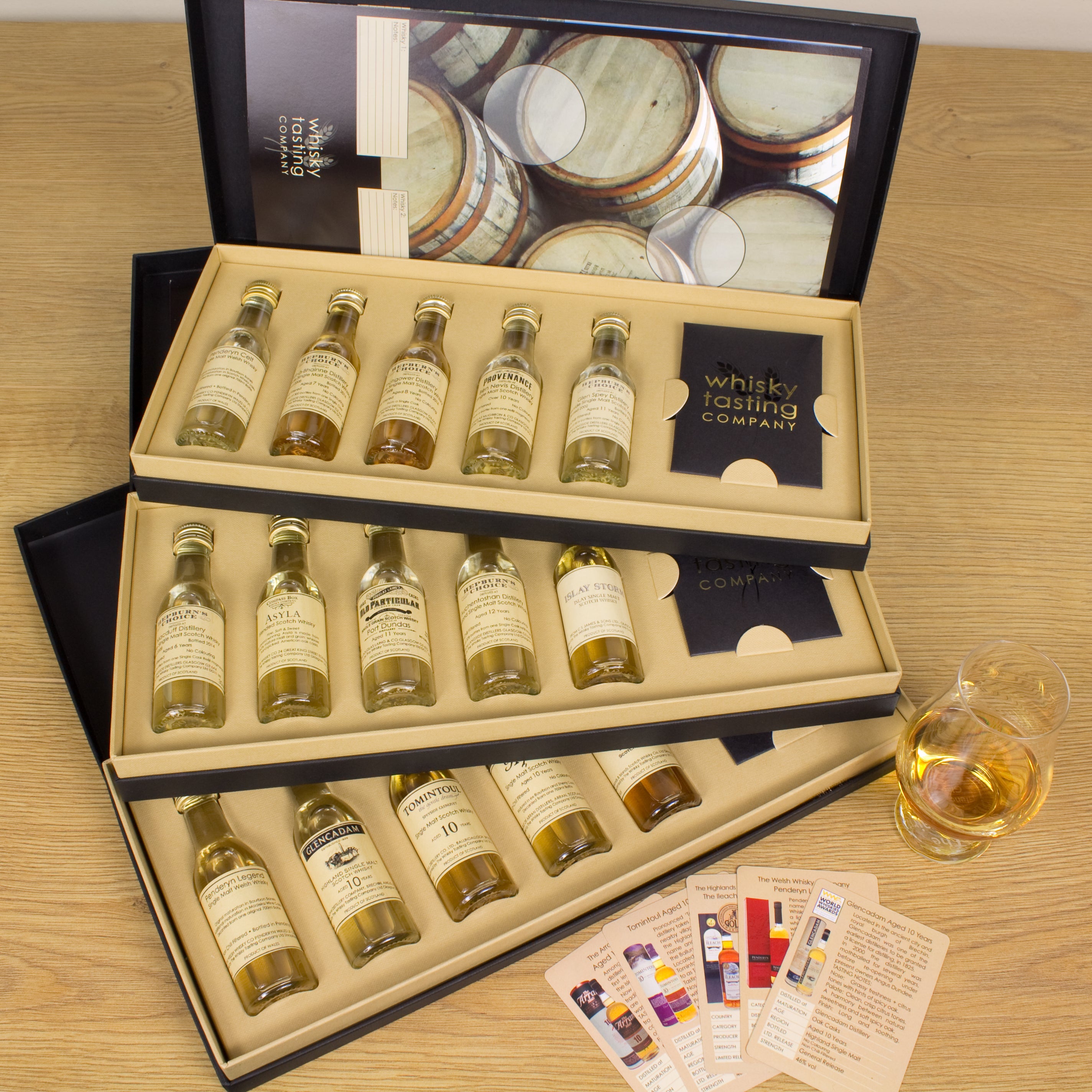What does single malt mean?

Single malt whisky.
It’s a term that’s heard far and wide. Considered one of the most superior classifications of whisky, it’s enjoyed far and wide too – yet centuries after its creation, it’s still the source of much confusion.
What exactly is a single malt?
What ingredients does it contain?
How is it actually made?
Where does it come from?
Even full-blown aficionados can struggle to provide a clear answer to these questions. But at the Whisky Tasting Company, single malt is our specialist subject. And in an attempt to demystify the most prized of all whisky varieties, here we provide an ‘official’ dictionary definition and address some of the most common misconceptions.
Read on and get to know your favourite single malts in a little more detail.
Dictionary definition of a single malt whisky
Single malt. Let’s break it down into the two separate words and what they mean.
Single:
The word single in single malt whisky refers to the fact that it comes from a single distillery.
For example, Tomintoul Single Malt Whisky is produced at just Tomintoul Distillery in Scotland. Glencadam Single Malt Whisky is made at only Glencadam Distillery. Penderyn Single Malt Whisky is, you guessed it, created at Penderyn Distillery – and Penderyn Distillery alone.
Malt:
The second word – malt – refers to the fact that single malt is made using malted barley as a grain.
This malted barley can come from anywhere in the world, but the single malt itself is defined by the country in which it’s made. For example, in Japan, distillers often import and use barley from the UK. But if the whisky is distilled and matured at a distillery in Japan, it’s classed as a Japanese single malt.

5 misconceptions about single malt whisky
1. Single malt whiskies are the product of a single barrel or cask
Not true. Neither are they the product of a single batch.
Single malts are typically made by blending together liquids from a large number of barrels.
Known as ‘vatting’, this is a technique used by most distilleries to ensure their single malt whisky has a consistent character and common flavour profile. In fact, if they did use whisky from a single barrel, your favourite dram would likely taste very different every time you bought a new bottle.
‘Single cask’ whiskies are actually pretty rare – they tend to be saved for limited edition releases, when the brand has greater freedom to experiment with and tweak the flavour.
2. All whisky inside the bottle is the same age
Another false belief, which stems from the misconception that single malt comes from a single cask.
As we’ve learnt, this isn’t the case – single malt whiskies are created by blending whiskies from several different casks or barrels. And the age of each one could (and often is) different.
The age on the bottle speaks of the youngest whisky in the mix.
For example, if a dram is stated as being 10 years old – such as a 10-Year-Old Glencadam – this is the youngest age that went into the vat. But in reality, it may contain liquid that’s much older.
3. Single malt whiskies only come from Scotland
Scotland is often regarded as the true home of single malt – and there’s no denying, for it to be called ‘scotch’, by law it has to be distilled in Scotland according to a very specific set of rules.
However, Caledonia certainly doesn’t have a monopoly on single malt.
The term ‘single malt’ just refers to the process used to produce the whisky. Unlike the grapes that go into wine, the flavour of a single malt isn’t determined by the soil or climate where its ingredients came from. Instead, it comes from the malting process, the type of barrels used and where they’re stored. As such, single malt can be distilled anywhere.
Japan has been making delicious single malts for decades, and the rest of the world is quickly catching up. They’re now made in every continent – except for Antarctica – as well as all over the US. And these international drams certainly rival some of the best made in the foggy glens of Scotia.
4. Single malt is an acquired taste
Think single malts are best left to the whisky connoisseurs? Absolutely not.
Single malts do tend to have a depth and complexity of flavour. And whilst some flavours are common – such as malt, vanilla, oak, spices (e.g. nutmeg, cinnamon etc.), dried fruits and smoke – each one has a distinct aroma and taste (which is unique to the distillery where it was made).
But that doesn’t mean they should be avoided.
To play it safe, those new to the whisky world often stick to a smooth and subtle blend. However, only your tastebuds can tell you what you like and don’t like. Single malts aren’t something you need to work your way up to. You could pick out your first bottle as an absolute beginner and instantly fall in love with its one-of-a-kind flavour.
5. Single malts are very expensive
The price of any whisky is determined by two factors: production costs and demand.
Producing a high-quality and mature single malt can be a lengthy process – much lengthier than making a blended whisky – and this can often drive the price up. Plus, as it’s considered more desirable to collectors, demand tends to be higher, and the price can go up again.
But that doesn’t mean you need to win the lottery to enjoy this type of dram.
Single malts can range from £20-30 to several million (for some incredibly rare bottles!), so it’s fair to say, there’s a tipple to suit all budgets. Whisky tasting sets – such as those available in our store – also offer an affordable way to try premium single malts, without having to pay for the full bottles.

In the mood for a single malt?
Perhaps you’ve been drinking single malts for years? Or maybe you’d like to introduce yourself to this special (yet widely misunderstood) type of whisky? Either way – with your newfound knowledge in mind – now is the time to treat yourself to our best-selling Single Malt Whisky Tasting Set.
Available for just £32.95, this features five of the very best single malts, including:
- Tomintoul Aged 10 Years
- Glencadam Aged 10 Years
- Arran Barrel Reserve
- The Ileach
- Penderyn Legend
You’ll receive a 30ml miniature of each, which is the ideal amount to sample their unique flavours. Plus, each set comes with a series of tasting cards, featuring facts and information about the whiskies and their respective distilleries, as well as a luxury whisky tasting mat to set out your liquors in style.
If you have any further questions – about what a single malt whisky is or the single malt whisky tasting sets available for you to purchase – please don’t hesitate to get in touch.
You’re always welcome to call us on 01743 247220 for a chat (after all, whisky is our favourite topic of conversation!). Or if you prefer, fill out our online enquiry form and we’ll respond as soon as possible.






